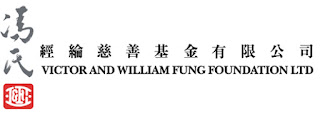 |
| The Victor and William Fung Foundation |
Victor Fung SM ’66 co-founded the Fung Foundation in 2006 to commemorate the centenary of the Fung Group, a Hong Kong-based business conglomerate started by his grandfather. The foundation promotes leadership development, principally through scholarship programs with universities, and thought leadership, principally through think-tanks and educational institutes.
Fung Scholarships enable awarded MIT undergraduates (“Fung Scholars”) to participate in university-based global education programs, including study abroad, internships, and faculty-mentored research. The scholarships will also continue to expand opportunities for undergraduates to go abroad during Independent Activities Period (IAP) and summer. This year's scholarship application opened in March, with the next recipients going abroad this summer.
“The Fung Scholarship Program has made a real and significant difference at MIT over the last four years, and we look forward to continuing this remarkable positive momentum over the next five years,” says Melanie Parker, executive director of MIT’s Global Education and Career Development (GECD). “The Victor and William Fung Foundation has opened a world of opportunities to MIT undergraduates and has provided powerful and life-changing global experiences. Thanks to the Fung Scholarship Program, MIT undergraduates — including first-generation students, underrepresented minorities, and students who have never previously traveled abroad — are ensured access to participation in enriching global experiences.”
“The Fung Scholarship Program is fundamental to GECD’s goal of increasing academic study abroad participation at MIT,” adds Malgorzata Hedderick, GECD associate dean of global education and prehealth advising. “The program has been significant in eliminating key barriers to participation.”
The Fung Foundation’s original donation enabled nearly 300 Fung Scholars to participate in global programs between 2011 and 2015. During this time, students participated in three types of programs abroad: academic study abroad (57 percent), internships (29 percent), and faculty-mentored research (14 percent). China and Hong Kong represented the most popular destinations, comprising 47 percent of all student experiences, followed by 43 percent in Europe.
Students who travelled abroad as Fung Scholars attest to the value of global education and how it has deepened their understanding of the world and their role in it. “Studying abroad in Madrid, Spain, for IAP was one of the best decisions I have made thus far at MIT,” says sophomore Allison Kaslow of her IAP-Madrid global literature experience. “It was an incredible academic, cultural, and personal experience. My time abroad has made an impact on me that will remain with me far into the future.”
“I will always remember the experience … as a critical juncture in my growth as a scientist and global citizen,” adds Archis Bhandarkar, a sophomore who worked on microfluidics last summer for a UROP at Imperial College London. “The program had a profound impact on how I conduct science, how I view a completely different culture, and — perhaps most importantly — how I see myself and my place in the world.”
“My time abroad has greatly influenced my academic and career plans,” concludes junior Nadia Lucas, who studied Chinese in Beijing. “I have already been switching my academic focus from engineering to economics and policy, which is why I wanted to go to China in the first place. It was an experience unlike any other in my undergraduate time here. I connected with people in a way that I never could have done before and gained countless skills that I could not have gotten from a classroom setting, and am very grateful to the Fung Foundation for providing me with the funds to have this experience.”
More information on global scholarships eligibility and the application can be found on GECD’s website.




0 Comments